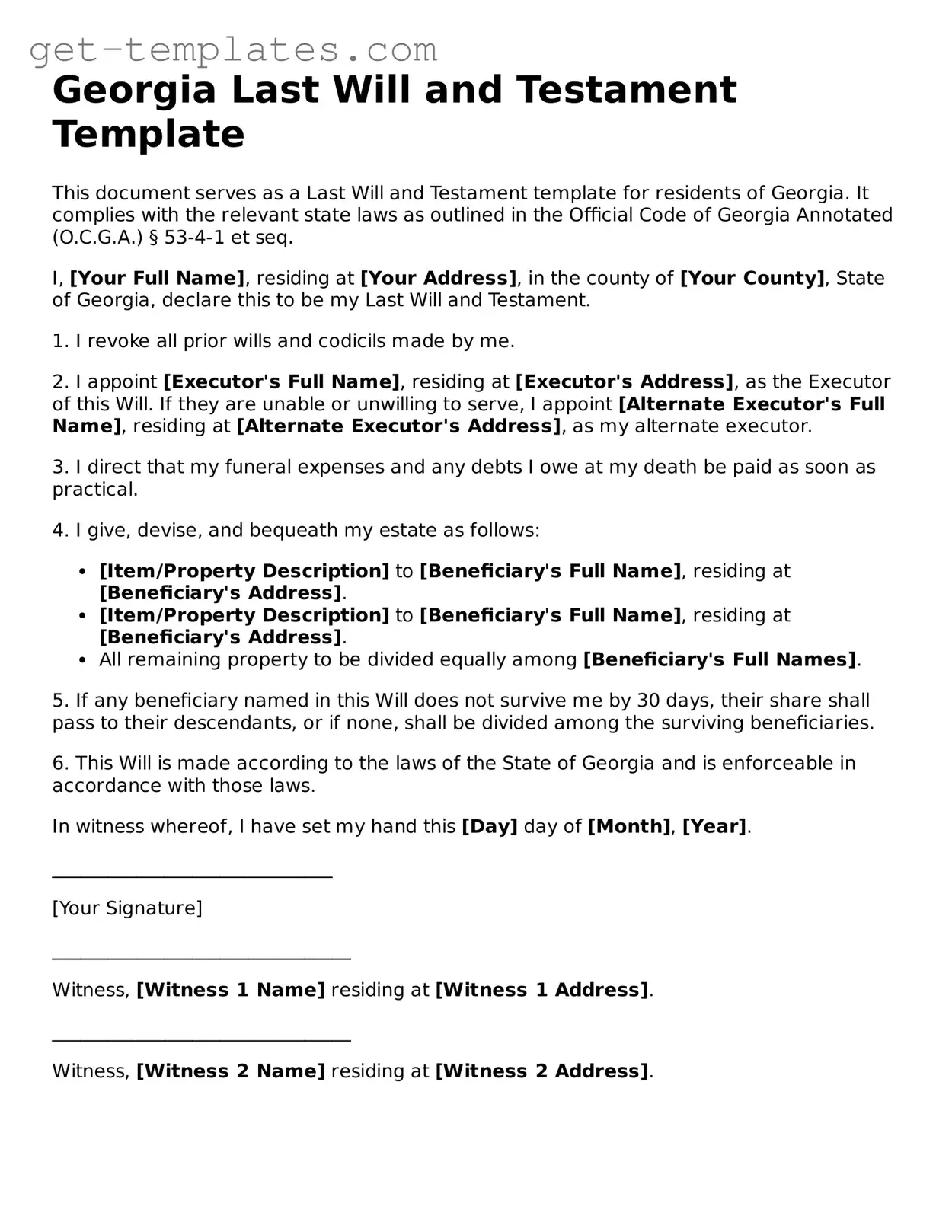Attorney-Approved Last Will and Testament Document for Georgia
A Last Will and Testament is a legal document that outlines an individual's wishes regarding the distribution of their assets and the care of any dependents after their passing. In Georgia, this form serves as a crucial tool for ensuring that one's intentions are honored and that loved ones are provided for according to the deceased's desires. Understanding the specifics of the Georgia Last Will and Testament form is essential for effective estate planning.
Get Document Online

Attorney-Approved Last Will and Testament Document for Georgia
Get Document Online
You’re halfway through — finish the form
Finish Last Will and Testament online — edit, save, download made easy.
Get Document Online
or
⇓ PDF Form
